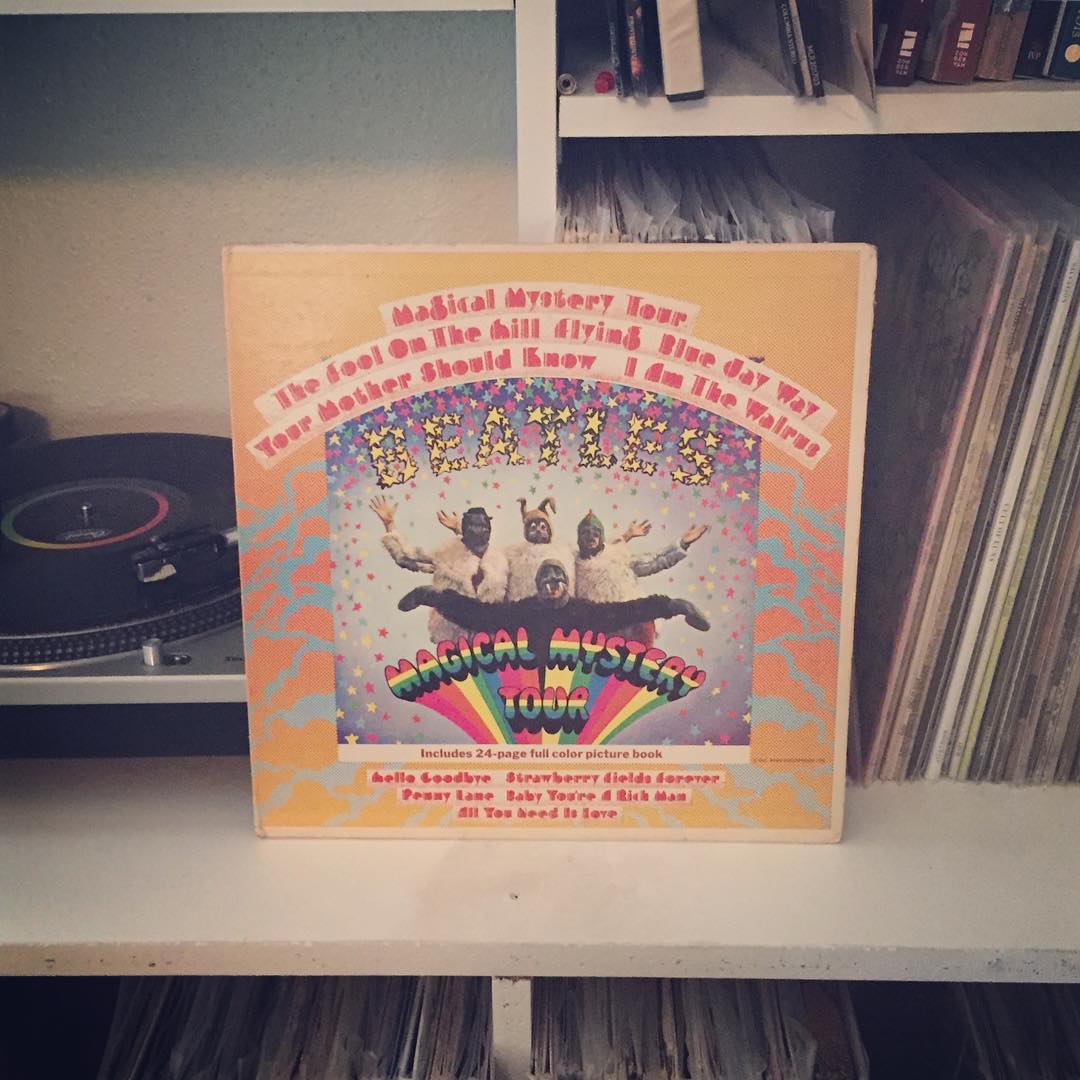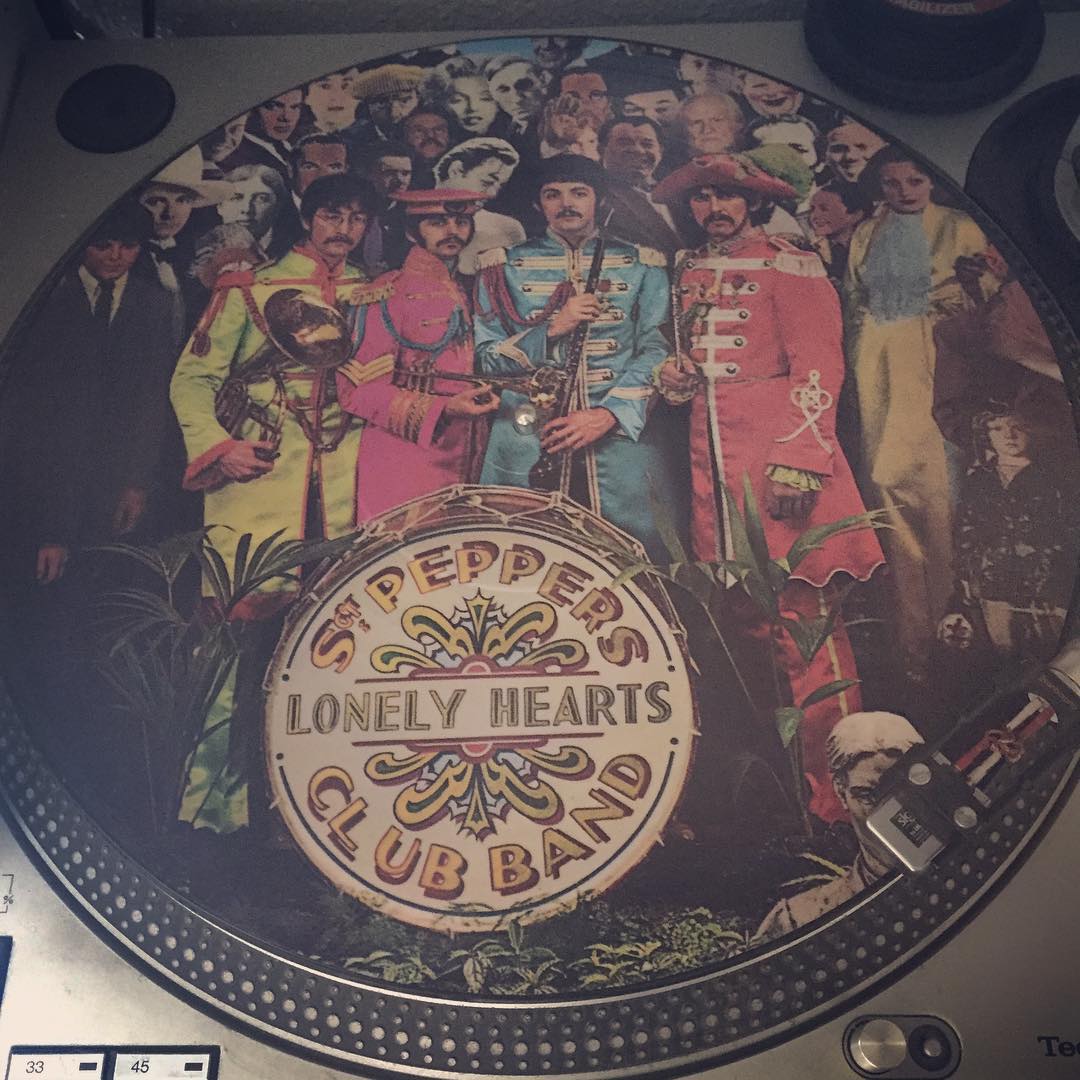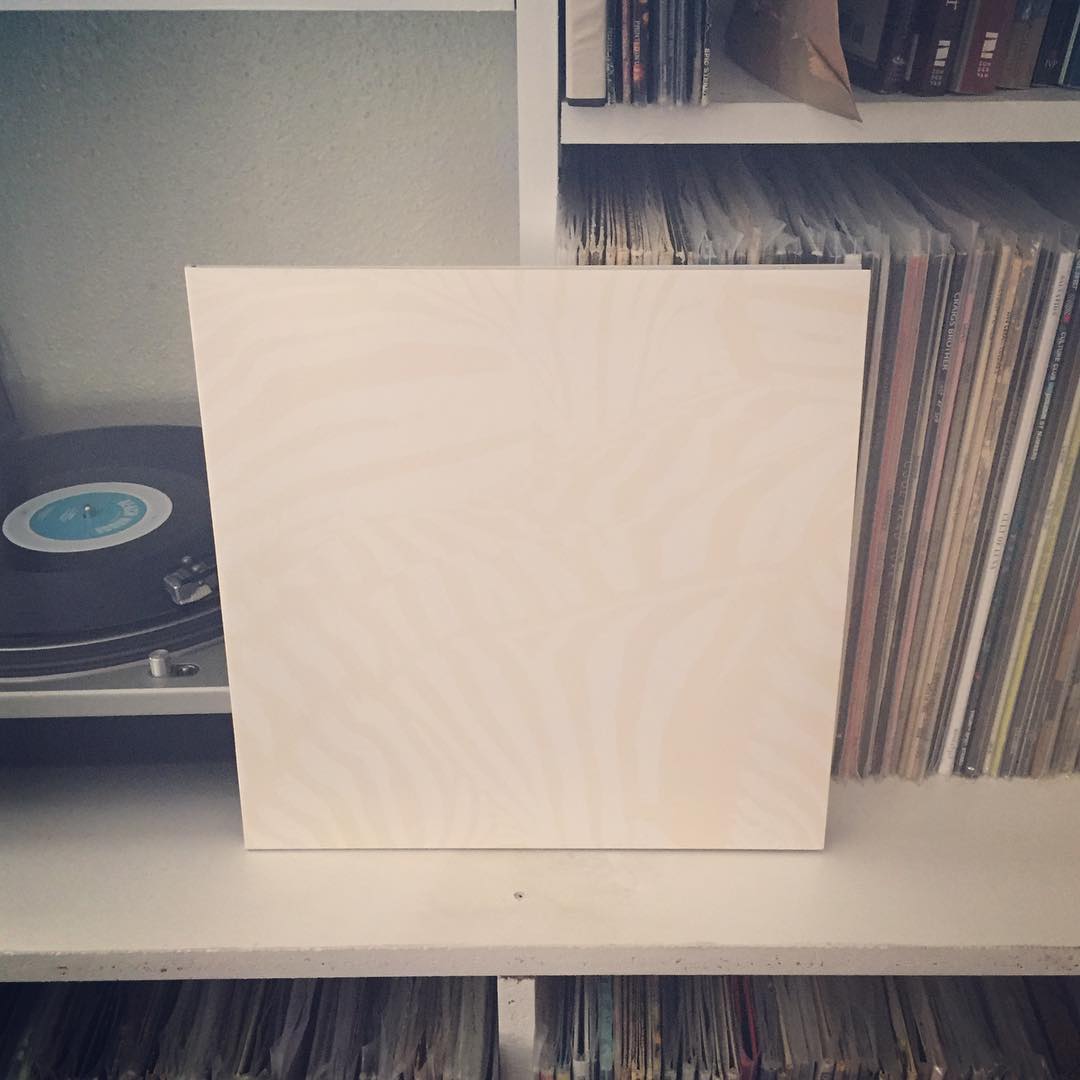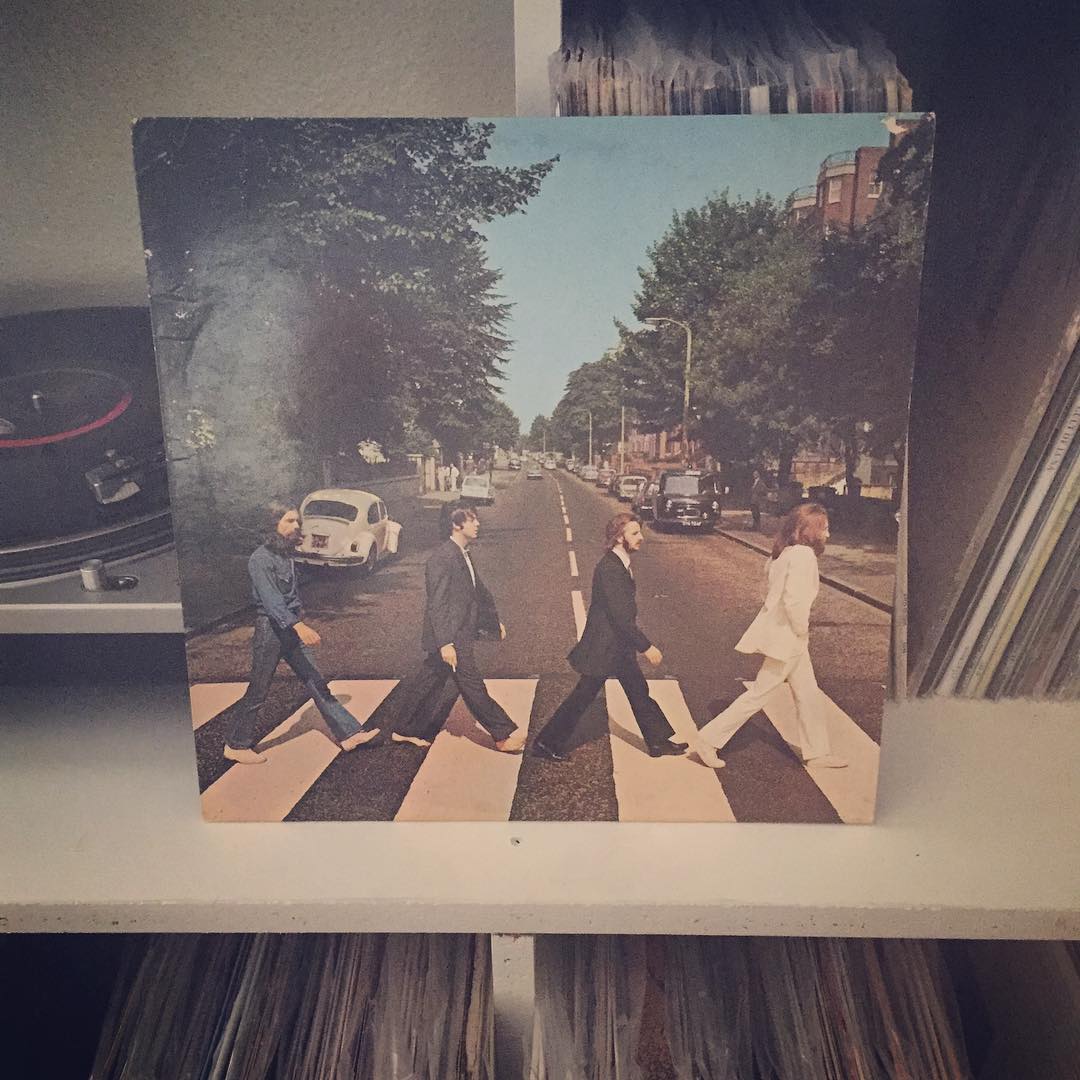Black Sabbath is often cited as one of the founders of the popular rock subgenre “metal,” but you’d never guess if you compared it to the drop-D tuned, breakdown plagued, double-kick-drum fury of today’s metal.
This is too melodic, lacking the palm muted chunks of contemporary metal, instead favoring dark (for the time) lyrics put over heavily distorted (again, for the time) blues rock.
But don’t take that as a criticism of the music, only of modern semantics.
Continue reading
Author: Nathaniel FitzGerald
Record #36: The Beatles – Abbey Road, 1969
And here it is.
Record #33: The Beatles – Magical Mystery Tour (1968)
 I will say it right now: Magical Mystery Tour is my favorite Beatles record.
I will say it right now: Magical Mystery Tour is my favorite Beatles record.
I will also say that “my favorite” and “the best” are different (the best is yet to come).
Continue reading
Record #32: The Beatles – Sgt. Pepper’s Lonely Hearts Club Band (1967)
 According to the Wikipedia article entitled Albums Considered The Greatest Ever, Sgt. Pepper’s Lonely Hearts Club Band (which is the one picture disc I own) is the album most often listed as #1 in “definitive” best ever lists. It also is pointed to as the album that drove Brian Wilson crazy trying to top.
According to the Wikipedia article entitled Albums Considered The Greatest Ever, Sgt. Pepper’s Lonely Hearts Club Band (which is the one picture disc I own) is the album most often listed as #1 in “definitive” best ever lists. It also is pointed to as the album that drove Brian Wilson crazy trying to top.
Continue reading
Record #31: The Beatles – Revolver (1966)
Revolver features a number of firsts for the group, all of them would go on to be Beatles trademarks, such as use of a sitar (George’s excellent Love You To), heavy psychedelic influence (I’m Only Sleeping, tragically missing from the US release), non-rock arrangements (the famous Eleanor Rigby), and studio noodling (the absolutely terrifying Tomorrow Never Knows, my favorite Beatles song of all time).
Beyond that, the songs are all just plain excellent. From Taxman to She Said She Said to Good Day Sunshine to Tomorrow Never Knows, there’s not a single bad song on the record (except Yellow Submarine, against which I am severely biased). The already great songwriters, composers, and performers had been for years placed in a context to nurture those skills, and along with producer George Martin (nicknamed the fifth Beatle) grew to legendary proportions.
The album also features three George Harrison tunes, more than any other Beatles offering prior, and those three songs happen to be three of the best songs on here. The three Lennon-led omissions on the US release (thankfully the last time Capitol would meddle with playlists) make for an interesting lack of John, with him only singing two songs, George his three, Paul five, and Ringo one. Although, the two Lennon tracks that made the cut (She Said She Said and Tomorrow Never Knows) are among his best.
And can we just talk about Tomorrow Never Knows for a second? This song is high and above the most ambitious thing the Beatles had ever done at that point, but more amazing than that is the fact that they actually pull it off without sounding too out there.
It’s still at its base, a three minute pop song. It just happens to be a pop song based around a single drone chord and filled with tape loops and reverse guitar solos. Appearing at the tail of end of the entire catalogue that preceded it, it’s the best transition into their more ambitious psychedelic period possible.
Whereas other songs here and there hinted at what was to come, Tomorrow Never Knows screams it. I can only imagine how listeners in 1966 would have reacted, hearing this completely otherworldly noise coming out of their speakers, with the sitars buzzing, loops squawking, and Ringo playing with more menace and power than he ever had before.
And when John’s voice comes in, howling through a rotary organ speaker (Parlophone had a word with them about the proper use of equipment after that one) singing “Turn off your mind, relax, and float downstream”…There’s really nothing to do after that but to do what he says.
And by the end of the track, the Beatles have made it clear–they’re capable of so much more than we could have ever imagined.
Record #27: The Beatles – Meet The Beatles (1964)
For a long time, I held the opinion that everything the Beatles did before Sgt. Pepper’s was pretty close to worthless–just mindless pop music. However, after a while, that threshold changed to Revolver, and then to Rubber Soul, until my current state where my music snob has admitted defeat in the face of the Beatles’ early catalogue.
Continue reading
Record #26: Beach House – Teen Dream (2010)
 A couple weeks ago, I couldn’t decide whether I wanted to spin Beach House or something else. I asked my wife, and she chose the other, stating “you listen to that record too much.”
A couple weeks ago, I couldn’t decide whether I wanted to spin Beach House or something else. I asked my wife, and she chose the other, stating “you listen to that record too much.”
Continue reading
Record #25: The Beach Boys – SMiLE (1967/2011)
As the legend goes, after the Beach Boys created the piece of pop perfection that is Pet Sounds, Paul McCartney heard it and wept for joy. He then joined the rest of the Beatles in the studio and recorded Sgt. Pepper’s Lonely Heart Club Band, regarded by scores of critics to be the greatest pop record ever recorded. Continue reading
Record #24: The Beach Boys – Pet Sounds (1966)
Were I given to brevity, this post would say one thing.
“This album is perfect.”
However, I am not given to brevity, so I will be expanding that review to varying degrees of verbosity.
This album is perfect because…
Having heard The Beatles’ Rubber Soul, the Beach Boys’ Brian Wilson quit touring with the rest of the group to focus on creating the greatest pop album ever. By all accounts, he succeeded. Pet Sounds so far surpasses the easy-going, vapid California-centric music the group had gotten famous for that it’s hard to understand that it’s the same five guys. While the lush harmonies are still present (What would the Beach Boys without their vocal interplay?), there’s less of the ba-bas and doo-wahs, with more emphasis placed on the small orchestra Brian Wilson hired to play on the tracks, to the point where there are two fully instrumental numbers (which are excellent, despite what anyone says).
And where their earlier material rode the waves of West-Coast beach culture and a nation’s desire to party, Pet Sounds finds them diving into personal waters for the first time. There’s a self-doubt that pervades Wilson’s lyrics, even on the love songs (“I may not always love you…” starts God Only Knows). While tracks like I Just Wasn’t Made For These Times and Don’t Talk (Lay Your Head On My Shoulder) are easily identified as sad songs, other, bouncier tracks are a bit more deceptive. Here Today, with its raucous orchestra and delayed bass solo, tricks you into letting the top down and singing along–until you realize he’s warning his ex-girlfriend’s new boyfriend about what a Jezebel she is. In fact, only Wouldn’t It Be Nice and the cover Sloop John B showcase purely optimistic lyrics; the rest of the songs are more complex, like the ballads You Still Believe In Me and I’m Waiting For The Day. Without exaggeration, this is the saddest happy record I have ever heard.
When all is said and done, The Beach Boys haven’t made too extravagant a statement. None of the songs last much longer than three minutes, nor is there any experimental tinkering in the studio (not to discount the round-about process Wilson used to actually record the album). They simply made a pop record with lush orchestration and wonderful songs. But, it was (and remains) the Greatest Pop Record.
Record #23: Atlas Sound – Parallax (2011)
As I’ve progressed through Atlas Sound’s discography, there is a very clear trend; atmospheres become less of a focal point, the vocals are higher in the mix, and the lyrics are more coherent. The album art follows suit—Let The Blind featured a picture he liked, Logos had a picture of his Marfan Syndrome affected torso with his face blurred out with a flash.
Continue reading


